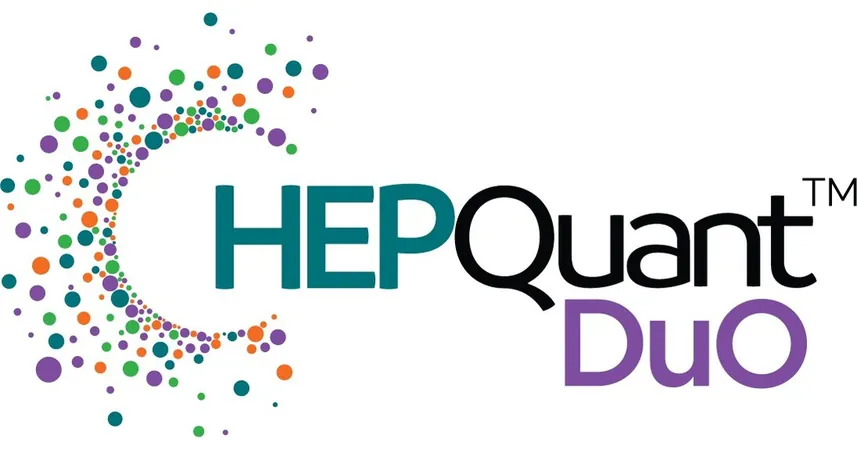
UK Unveils Revolutionary DNA Sequencing Initiative to Avert Future Pandemics!
2024-11-08
Author: Siti
Introduction
In an ambitious move to safeguard public health, the UK is launching what it claims to be "the world's first real-time surveillance system" designed to thwart future pandemics. This groundbreaking initiative is the result of a public-private partnership between the government, the National Health Service (NHS), and Oxford Nanopore, a pioneering genome sequencing technology firm.
Goals of the Initiative
The primary goal of this program is to facilitate rapid identification and treatment of respiratory infections, with results expected in as little as six hours. By enhancing treatment speeds, officials believe patient outcomes will improve significantly. The quick sequencing of pathogens aims to prevent a catastrophic repeat of the COVID-19 pandemic, which wreaked havoc around the globe in 2020.
Importance of Swift Detection
UK Health Security Agency Chief Medical Advisor Susan Hopkins emphasized the importance of swift detection: "Early detection is absolutely crucial in enabling us to respond effectively to any emerging pathogen. With the UK’s existing expertise in genomic surveillance, this initiative will bolster our resources and enhance our ability to tackle public health threats more proficiently."
Technology Behind the Initiative
Oxford Nanopore employs advanced third-generation sequencing technology that utilizes nanoscale pores within ultra-thin protein membranes to analyze DNA. As individual DNA strands pass through these pores, they alter the ion current, enabling the real-time identification of nucleotide bases. This innovative method boasts a remarkable accuracy rate of over 99% in ideal conditions and has proven effective in independent tests.
Expansion and Collaboration
The new nanopore sequencing technology will be rolled out at up to 30 NHS locations across England, expanding the current respiratory metagenomics program. The data collected will be crucial for identifying emerging pathogens and will involve collaboration with Genomics England and the UK Biobank, enhancing the nation's disease surveillance capacity.
Urgency and Broader Impacts
Adding urgency to this initiative, Health and Social Care Secretary Wes Streeting remarked, "If we fail to prepare, we should prepare to fail. Our NHS was already under immense strain when the pandemic struck, and we cannot afford to let history repeat itself."
Modernization of the NHS
But the benefits of this initiative go beyond just pandemic preparedness. The partnership aims to modernize the NHS by transitioning it from analog to digital systems as part of the government's ten-year transformation plan. Olympicking at broader applications, Oxford Nanopore indicated potential uses for its technology in oncology, including early cancer detection and screening newborns for genetic disorders.
Conclusion and Future Prospects
While the exact timeline for rollout remains unclear, with plans set to begin next year, the exact locations for the deployment of technology are yet to be disclosed. As the UK ramps up its preparation for the future, the world will be watching closely to see if this ambitious strategy truly paves the way for a healthier and more resilient society.
This groundbreaking effort marks a pivotal moment in the UK's health sector, leveraging cutting-edge technology to transform its approach to public health and disease management. Are we prepared for the next pandemic? Only time will tell!






 Brasil (PT)
Brasil (PT)
 Canada (EN)
Canada (EN)
 Chile (ES)
Chile (ES)
 España (ES)
España (ES)
 France (FR)
France (FR)
 Hong Kong (EN)
Hong Kong (EN)
 Italia (IT)
Italia (IT)
 日本 (JA)
日本 (JA)
 Magyarország (HU)
Magyarország (HU)
 Norge (NO)
Norge (NO)
 Polska (PL)
Polska (PL)
 Schweiz (DE)
Schweiz (DE)
 Singapore (EN)
Singapore (EN)
 Sverige (SV)
Sverige (SV)
 Suomi (FI)
Suomi (FI)
 Türkiye (TR)
Türkiye (TR)